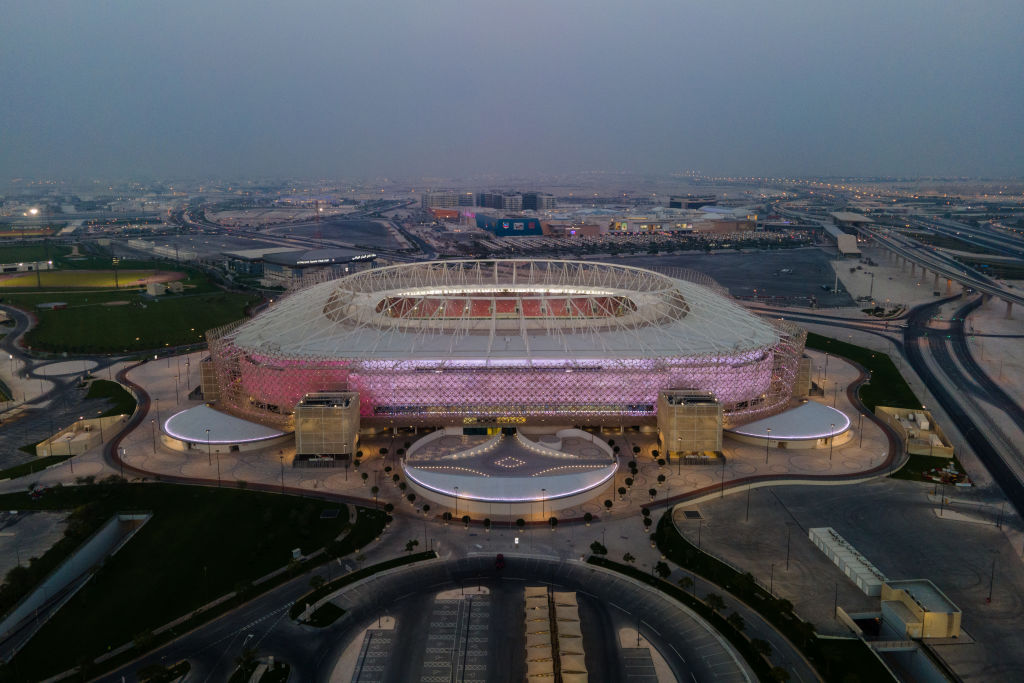Ad build-up to Qatar World Cup is ‘oh so quiet’

The World Cup is a little over three weeks away but it’s oh so quiet. At least when Björk sung those words, the accompanying music video by Spike Jonze showed people spontaneously spilling into the street in a Busby Berkeley-style choreographed celebration.
But it’s increasingly hard to shake the feeling that there isn’t quite that level of enthusiasm for the upcoming tournament not least because of the comparative lack of marketing activity around it.
Jonze also shot videos for Brighton fan Norman Cook AKA Fatboy Slim whose sample of Angela Bassett in the movie Strange Days powers one of football’s most frequent hype-building walk-on tracks.
But only a handful of major sponsors are Right Here, Right Now when it comes to campaigns in the lead up to Qatar 2022.
High impact TV ads remain the weapon of choice for marketers when it comes to making noise ahead of major tournaments.
Like fine wine, they usually give them time to breathe, launching them several weeks or even months out from the opening game and they are often as memorable as the tournament itself.
But it’s a symptom of a low-key build-up to this tournament that many are still keeping their powder dry.
There’s a number of reasons for this.
Not only is football itself still coming to terms with the first winter world cup and the disruption it is causing to the club season but the timing is also playing havoc with the marketing commitments of the games’ multitude of business interests.
While fans grapple with the fact that England meet Iran in Doha just eight days after Manchester United play West Ham at Old Trafford, sponsors are working out how to balance World Cup campaigns with what are, for many, the biggest commercial opportunities of the year: Black Friday – when England play the USA – and Christmas itself.
This World Cup is also arguably the most controversial ever staged which may also play into the considerations of sponsors not least because of the additional economic headwinds generated by the invasion of Ukraine by Russia, host nation of another tournament not entirely free of controversy.
A quiet build-up does not mean all sponsors are silent though. Coca-Cola, an official sponsor of the tournament since 1978, has unveiled a typically upbeat campaign that exhorts fans to Share a Promise, committing to carrying out an act should their team win, from getting a tattoo to dying their hair or even shaving off lustrous locks.
This is in addition to their well-established global FIFA World Cup Trophy Tour which recently visited England and, for the first time in its history, Wales.
Meanwhile, official beer sponsor Budweiser has aired its main TV ad telling fans that “The World Is Yours To Take” and featuring Neymar Jr, Lionel Messi and Raheem Sterling leading fans up a metaphorical tunnel to realise their dreams, soundtracked by Tears for Fears’ anthem “Everybody Wants to Rule the World”
Pepsi, meanwhile, although not an official partner, continues its tried-and-tested approach of partnering with big name players. In this case the ubiquitous Messi, Paul Pogba and retired Brazilian legend Ronaldinho team-up for a football meme-athon as they take on local Qatari fans. Transfer news guru Fabrizio Romano, VAR, 8-bit graphics and EA’s FIFA Ultimate Team all get in on the act to the sound of “The Rockafeller Skank” by Fatboy Slim.
With not long to go, big guns such as adidas and Nike are keeping us waiting for their big marketing plays.
Come 2026 though, and a World Cup in the United States, Canada and Mexico, it’s likely we will see a return to the natural rhythms of sponsor marketing around the tournament.
In the meantime, let’s hope the build-up gets just a little bit louder even though that other famous Icelandic export, Bjork’s countrymen that lit up the last World Cup with their booming Thunderclap, have failed to qualify.
Neil Hopkins is head of global strategy at M&C Saatchi Sport and Entertainment.